In Part II, the Uber Cup preview, Aaron Wong reveals the lessons learnt from Korea’s historic maiden victory at the last edition.
By Aaron Wong, Badzine Correspondent. Photos: Badmintonphoto
“I’m a lot sharper than I used to be.”
“I’ve done this before.”
“It’s been a while since I’ve done this.” (“Remind me: how did I do it, again?”)
“I CAN do this.”
Not only is that what’s going through my head, staring at the flashing cursor and blank screen, about to research and write about this particular tournament – something I haven’t done for two years and a job to complete ahead – but similar thoughts would also be crossing the minds of seven ladies out of the ten-strong Korean team as they return as key players and third seeds to defend the Uber Cup.
For these elite athletes, their team competition “muscles” are about to be tested again. As all athletes know, muscles need regular exercising; and warmed up muscles, whether physical or psychological, work better than cold ones.
The Uber Paradox
China is once again the women’s top seed but Korea is defending their maiden World Women’s Team Championship title. Korea winning, at the time and in hindsight still, was a stunning demonstration of a team rising to the occasion and becoming greater than the sum of their parts.
The paradox of women’s badminton is that on one hand, China’s ladies present the most fortified force in world badminton, unbelievably more so than their own men’s side, owing to their frequent domination with the top four singles players and at least the top two doubles pairs in the world. Yet, crucially, the slower pace of the women’s game, particularly in singles, means that an alternative to a Chinese ending to competitions is somehow plausible. How else do you quickly explain Korea’s 2010 Uber Cup victory?
Four: Drawing first blood
It wasn’t a stylish match to watch as the underdog was clearly playing with the singular plan of having no intention of losing:
Korea’s Bae Seung Hee went out of the gates first and withstood the heat to frustrate and outlast Wang Yihan in their fateful first singles Uber Cup final on May 15th, 2010 – someone outside the top ten had found a way to beat the world number one. Significantly, non-Chinese ladies all over were inspired and have since gained a lot confidence by repeating the feat.
Each of the five best-of-three matches in a team encounter is worth 1 point, but it does not necessarily mean they are all of the same value. Drawing first blood instils vital confidence in one’s team like nothing else can; and the reverse situation and subtraction of confidence is also true, particularly for the underdog team.
The lasting legacy of Korea’s Uber victory has been that we now take for granted that China’s three Wangs are beatable and it’s no longer a huge surprise when it does happen at the racquets of Germany’s Juliane Schenk, Thailand’s Ratchanok Intanon, or Taiwan’s Tai Tzu Ying or even Dutch veteran Yao Jie (aged 34 when she beat Wang Yihan last year), to name just a few.
Five: Live for today
One of the reasons the Korean victory came as a surprise is that, days earlier, they struggled to suffocate their Russian opponents. Bae Seung Hee needed three games to carve out a win over Ella Diehl as did first doubles Lee Hyo Jung / Kim Min Jung, who barely survived the meeting against Sorokina/Vislova 21-23, 21-9, 24-22.
Live for today is the lesson here. Take each encounter as it comes. Don’t count your chickens before they hatch, that sort of adage. It was the right conditioning for the Koreans as wishing to win the Uber Cup from the outset of the week would have distracted their focus which they needed all of it, because of their dual scratching pairings.
Back to the 2012 edition, Uber Cup’s Group B match-up of Taiwan and Thailand can go either way. Although seeded one rung above, the Taiwanese women are the underdogs without their top singles player, World Championship silver medallist Cheng Shao Chieh, and are instead depending on a teenager to helm the first spot.
Still, it is perhaps possible for Taiwan to win by following the Korean example of splitting their top doubles pair Cheng Wen Hsing / Chien Yu Chin. Without splitting, the feisty and veteran Thai women’s doubles know that the second Taiwanese doubles will need to summon something special within themselves (above their usual best) on the day in order to triumph.
Six: Not excluding experience
In Badzine’s last Uber Cup preview, I made a hasty sweeping statement that China leaving off the list their up till then most experienced women’s doubles proponent, Zhang Yawen, wouldn’t make a difference, what with all the other former world number ones already crowding around.
Inadvertently, I reflected the thoughts of the Chinese team management. No one can say that Zhang’s inclusion would have changed the outcome, but more to the point, her exclusion simply represents overlooking the factors of Experience and Maturity and planning based solely on technical prowess alone.
China’s 2010 women’s side was made up entirely of Uber Cup debutantes apart from Jiang Yanjiao, who only played one match and against a junior Malaysian. Whereas Korea made the gutsy decision to separate both the very experienced Lee Kyung Won / Lee Hyo Jung partnership as well as the highly ranked but underperforming Ha Jung Eun / Kim Min Jung in a gamble which no one could possibly have known would pay off as the tournament match point was 20-19 in the second doubles third game facing the Beijing Olympic Champions Du/Yu.
This time around, every one of China’s team has been to the Uber Cup before, though Li Xuerui, Cheng Shu, and Zhao Yunlei will be playing in their first Finals, after participating in China’s anomalous Asian preliminary round campaign earlier this year. Pan Pan’s inclusion over former world number one Ma Jin might seem puzzling but not after considering it is an Olympic year and the latter is a gold medal chance so it is prudent not to risk injury to both of China’s mixed doubles stars (the other is Zhao Yunlei who is fielded for second doubles duty).
Ticking all the boxes
Indonesia’s women suffer the same fate as their men by being drawn in Group A to play China, and lacking any star singles players in their ranks makes the mountain treacherous to climb.
Whether Korea will again create scratch pairings from both their top ten pairs Ha/Kim and Jung/Kim remains to be seen but it is unlikely as neither lady in the former pair has an overtly alpha quality about her, unlike each of Lee Kyung Won and Lee Hyo Jung before them.
Should the defending champions Korea meet China again on the last day of the Uber Cup for a revenge match that everyone desires to see, they can already tick off three of the boxes of including experienced players leading their team that far.
Although Korea is noticeably weaker this year without their two retired Lees, things are a little brighter for them in another sense. While in 2010, neither Kim Min Jung nor Ha Jung Eun had ever beaten a Chinese pair, they have since erased that black mark on their record both individually and as a pair, in particular with their victory over the World Champions Wang/Yu at the Korea Open. Also, in 2010, Bae Youn Joo and Bae Seung Hee had scored a combined 3 isolated victories over top Chinese players and Sung Ji Hyun had none. Now, both Sung and Bae have the experience of beating all four Wangs and are winless only against Li Xuerui, who can only play third singles.
2012: Ticking the 4th box
What remains to be done is for Sung Ji Hyun to draw first blood against Wang Yihan. Beyond that, Korea may be needing second doubles Kim Ha Na / Jung Kyung Eun to keep the unforced error rate low and be wary of their opponents’ strategy to capitalise at the net in order to close the deal against world number two Zhao Yunlei / Tian Qing — there’s a first time for everything and the young Koreans have only been improving and bridging more and more of the moat against this Chinese pair, forcing it into the deciding game in the latest of their three encounters.
![UBER CUP 2012 2012 Preview – The Bae Seung Hee Legacy In Part II, the Uber Cup preview, Aaron Wong reveals the lessons learnt from Korea’s historic maiden victory at the last edition. By Aaron Wong, Badzine Correspondent. Photos: Badmintonphoto “I’m […]](https://www.badzine.net/wp-content/uploads/Newsflash-thumbnail.png)
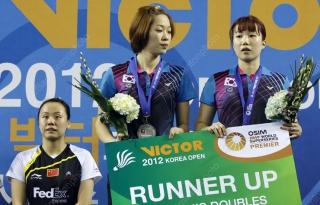
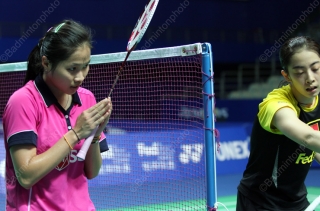
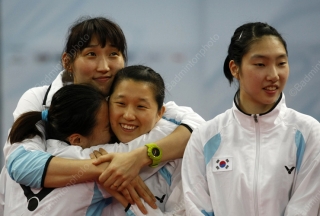
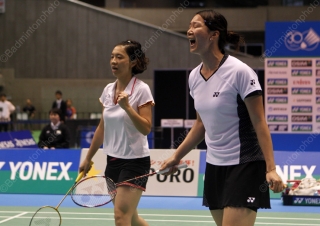
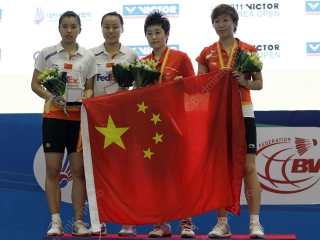
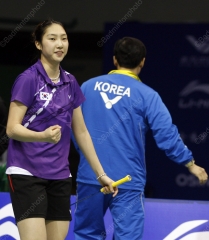

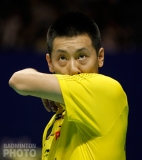
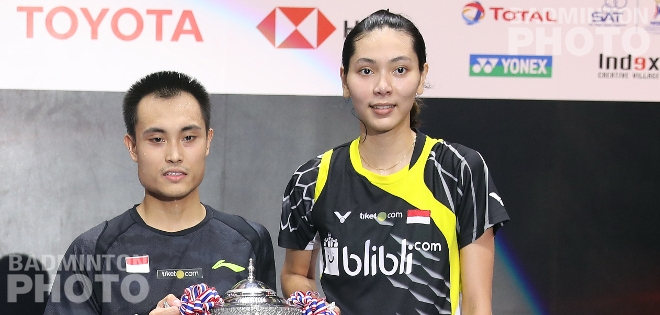
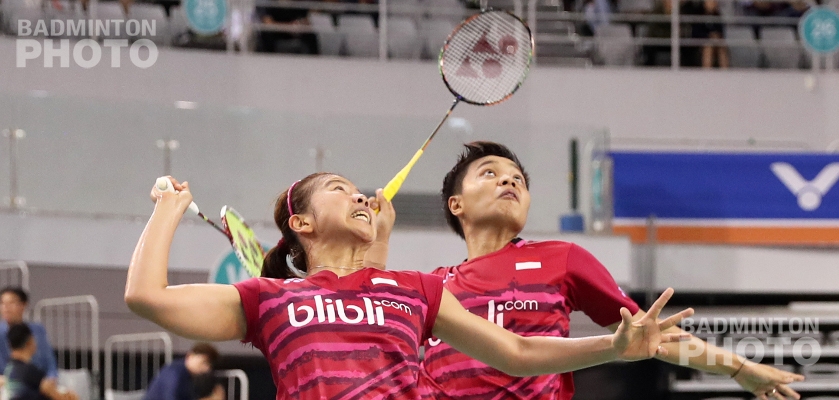
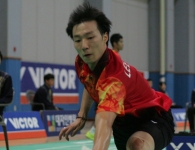
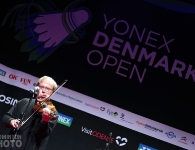
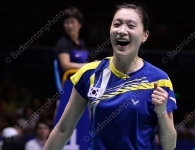
Leave a Reply